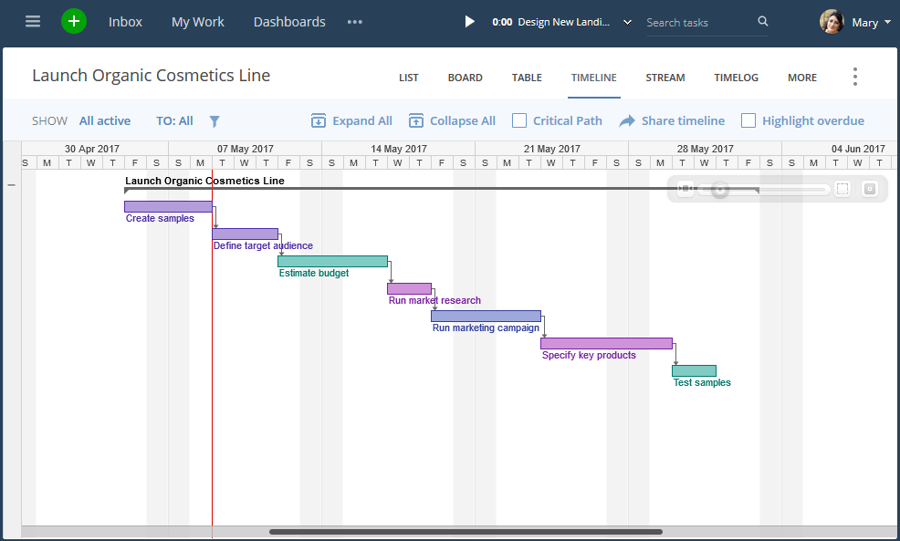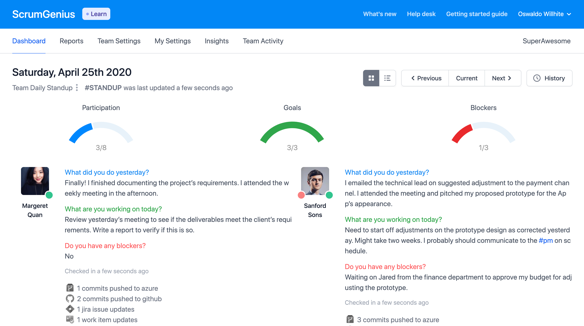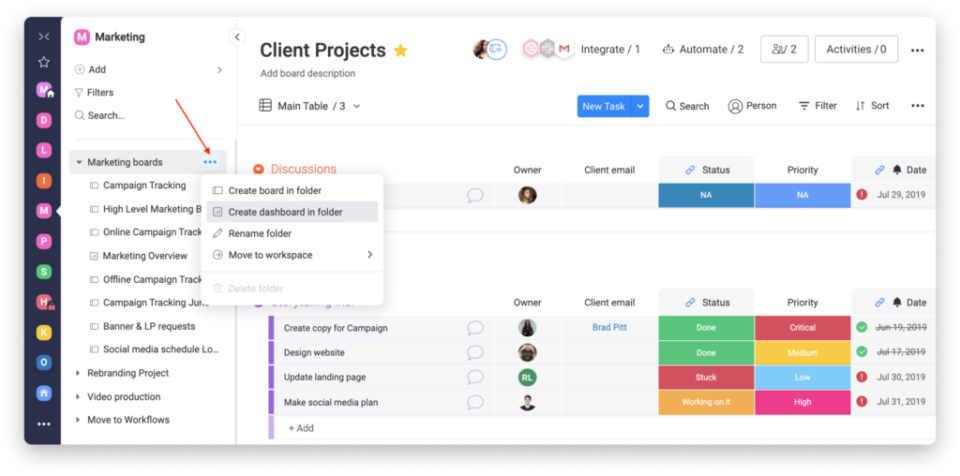Are you looking for the perfect project management methodology for your software development team or project? Then keep reading, as we will discuss how to pick the proper PM methodology for your needs, while sharing some of the best of the bunch so you can get a sense of which options are out there.
Reading: Top 5 Project Management Certifications for 2022
What is a project management methodology?
In basic terms, a project management methodology is a framework that helps project managers manage a project so you can ensure everything runs smoothly and your entire team is on the same page. In doing so, you can maximize efficiency and productivity and achieve optimum performance so that your final product is of the highest quality possible, on budget, and delivered on schedule.
What is a more official definition? According to the Project Management Institute (PMI), “a methodology is a system of practices, techniques, procedures, and rules used by those who work in a discipline.”
While PM methodologies can play a huge role in a project’s success, they can also present a significant problem: there are so many of them, and while one methodology may work wonders for one team, it may spell disaster for others.
Example of Monday.com Project Management Software
Several software developers figured this out firsthand, as they found that traditional PM methods (such as the Waterfall method) were hurting their workflows and negatively impacting their performance. To adjust, software teams started creating new project management methodologies to fit their unique needs.
Once those new methodologies were in place, other industries began to adapt them to fit their needs, and so on. What did this result in? The creation and existence of tons of methodologies. And, while having plenty of options to choose from is great, you have to know what to look for to find the right project management approach for your development team.
How To Pick The Right Project Management Methodology?
Picking the wrong project management methodology can sabotage your development team’s success and cause your firm to significantly lose time and money. To avoid such a mistake, consider the following when choosing the right PM methodology for your project:
- Team composition – How many team members do you have? What about stakeholders? Is your team organized and concise, or is it large and requires more coordination and instruction from management?
- Client – Speaking of stakeholders, how much involvement will they have in the project? Will they sit on the sidelines or be more hands-on?
- Time – Do you have a strict deadline that needs to be met quickly? Or is quality most important, allowing you more time to generate a complete, refined product?
- Budget – Does your project have plenty of financial backing, and can you get more funding if needed? Or are you stuck with a strict budget and limited funding that constrains your efforts?
- Flexibility – Can your project’s scope change if needed? Can the final product be tweaked?
- Risk – Is your project small, allowing you to take risks? Or is it massive, requiring more careful management and strict adherence to standards?
Consider all of those factors when making your project management methodology pick, and you can avoid headaches later on.

Example of a Gantt Chart in Wrike PM Software
What are the top project management methodologies?
Below is a list of some of the top project management methodologies for software development teams.
Agile Project Management Methodology
Agile project management has become so popular that it has sparked the development of many sub-frameworks and methodologies, like Kanban, scrumand lean. Teams that got tired of using a linear approach in project management helped spur the creation of the agile methodology. PM methods that prevented adaptability as projects progressed ignited a shift towards more iterative models that gave development teams the power to revise projects on the fly instead of having to wait until the end.
The agile PM methodology is quick, collaborative, and allows for data-driven change. Agile teams typically perform short work phases that involve plenty of testing and reassessment so they can adapt with ease. Any work that needs to be done is added to a backlog that teams can tackle during each phase. Agile Project managers prioritize the backlog so everyone knows what needs to be completed first.
The agile methodology is right for you if:
- You value speed over perfection.
- Your project is bound to change.
- Stakeholders want significant involvement throughout the process.
- The end product is not clearly defined at the outset.
If you have strict deadlines, need to deliver a predictable product, or require a lot of documentation, the agile methodology is probably not right for you.
Reading: What is Agile Project Management Software?
Kanban Project Management Methodology
A popular agile offshoot is the Kanban project management methodology. It uses Kanban boards to show task progress through columns, which is ideal for providing team members an instant overview of where everything stands, plus pinpointing potential bottlenecks. The methodology also emphasizes work in progress (WIP) limits to prevent team members from stretching themselves thin, which can boost productivity and keep morale high.
The Kanban methodology is right for you if:
- You want a quick visual overview of your project’s progress.
- Like the thought of using WIP limits to boost team focus.
- You need the ability to see status updates at a glance.
If your project has a process that involves several stages or is incredibly complex, the Kanban methodology is most likely not right for your project.
Reading: Monday.com Project Management Tool Review
Scrum Project Management Methodology
Scrum is another agile offshoot that some consider more of a framework than a full-blown project management methodology. It uses sprints, which are short work cycles that often last 1-2 weeks. Work for each sprint iteration is taken from the backlog.
Scrum Masters (not project managers) lead small teams during each sprint. Performance is then reviewed via a sprint retrospective to pinpoint any changes that must be made before the next sprint.

Example of a Scrum Tool from Microsoft Teams
The scrum methodology is right for you if:
- Your team is fully committed.
- You are looking to continuously improve.
Reading: Top Collaboration Tools for Web Developers
Rapid Application Development (RAD) Methodology
Teams looking to speed up their software development can turn to this agile PM methodology. It can gather vital feedback in a snap thanks to iterations and rapid prototype releases and places a priority on that feedback versus rigid requirements and planning.
the RAD methodology is right for you if:
- Speed is emphasized over perfection.
- You want to reuse code.
- You want to produce a working model quickly that you can share with stakeholders.
- You want to supply stakeholders with several prototypes they can pick from.
If your team is large or inexperienced, and your stakeholders cannot offer feedback and collaborate frequently, then the RAD Methodology is not right for you.
eXtreme Programming (XP) Project Management Methodology
Extreme Programming (XP) is another agile PM methodology made with software development in mind. Simplicity, communication, feedback, respect, and courage are the five core values it stresses, and teams are expected to follow a defined set of rules.
The XP PM methodology is right for you if:
-
- Your team is small and local.
- You want to create an environment of collaboration and teamwork.
If your team works remotely or is spread across different time zones, or you do not like to follow rules, the eXtreme Programming methodology is not right for you.
Reading: Zoho Projects Review
Waterfall Project Management Methodology
One of the more traditional approaches to project management is the waterfall methodology. Sometimes referred to as the Software Development Life Cycle (SDLC), it involves completing tasks in a linear manner, so each stage of the project must be completed before the next one can begin.
The waterfall methodology typically employs the following stages: Requirements, analysis, design, construction, testing, deployment and maintenance. Like with an actual waterfall, progress in the SDLC methodology flows in a single direction. This is good for predictability since you map out everything initially, but it can backfire if problems appear and adjustments need to be made on the fly. In other words, once a stage is completed, you cannot go back to it to make fixes because, like a waterfall, swimming against the current is not possible.
The waterfall or SDLC methodology is right for you if:
-
-
- Your industry is highly regulated and requires a lot of documentation or tracking.
- Your project’s final goal is clearly defined and will not change.
- Your project will follow a predictable and consistent pattern.
- Stakeholder desires are not likely to change.
-
If adapting to feedback or continuous testing is part of your project, and it is more dynamic than static, pick another methodology.
Reading: Project Management Software for Developers: Complete Guide
Project Management Certification
If you are a project manager looking to increase your value as a project management lead for a software development team, adding a certification to your resume can help you become more in-demand and increase your salary. A few courses you can consider taking to help you prepare for your project management certification exam include:
read more project management tutorials and PM tool reviews and comparisons.
